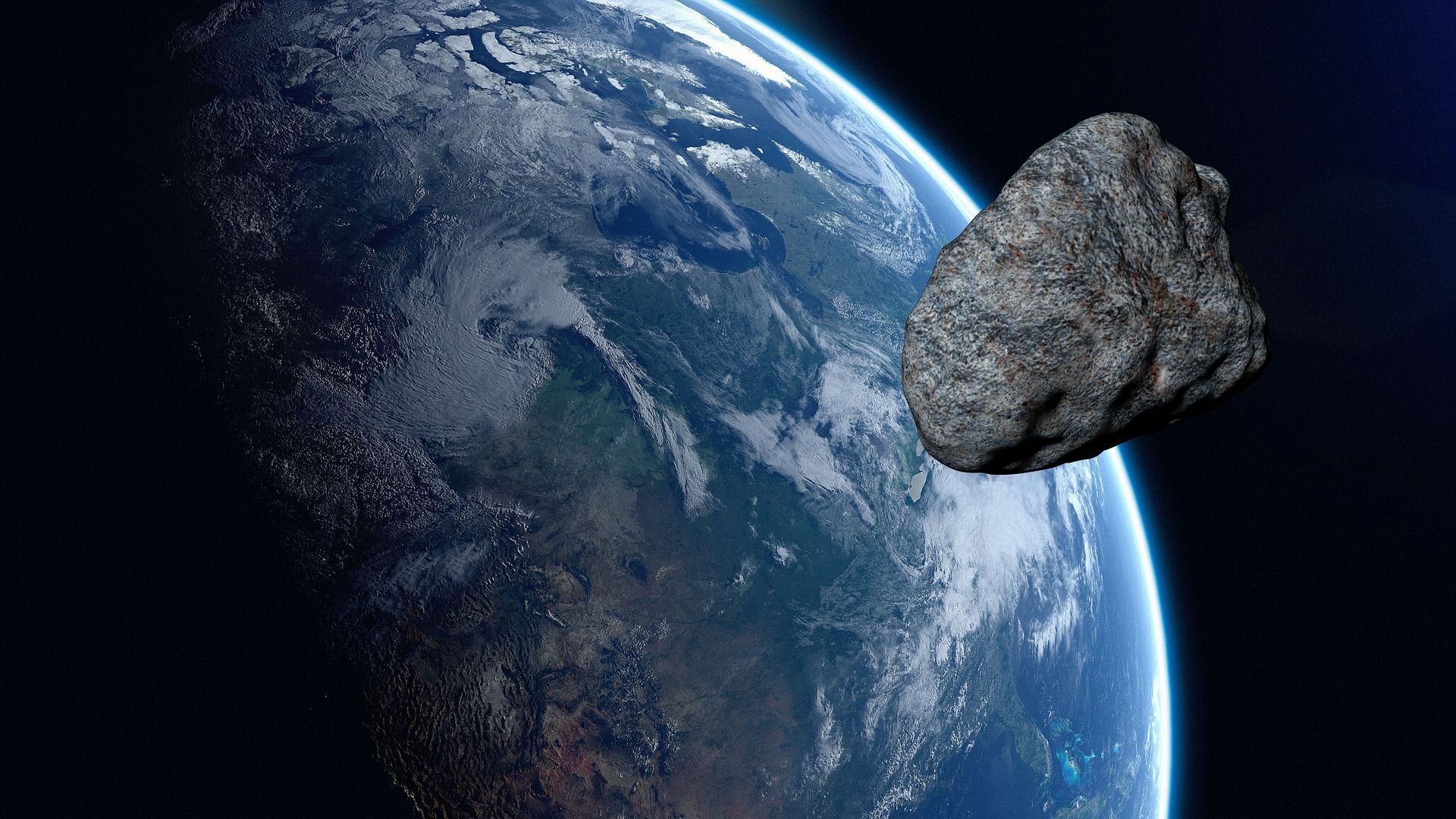https://sputnikglobe.com/20211030/small--stealthy-asteroid-whizzes-past-earth-undetected-1090350174.html
Small & Stealthy: Asteroid Whizzes Past Earth Undetected
Small & Stealthy: Asteroid Whizzes Past Earth Undetected
Sputnik International
The asteroid reportedly approached Earth from the direction of the Sun – escaping detection by astronomers. 30.10.2021, Sputnik International
2021-10-30T19:03+0000
2021-10-30T19:03+0000
2022-11-30T10:01+0000
world
asteroid
detection
avoidance
sun
https://cdn1.img.sputnikglobe.com/img/107910/12/1079101273_0:0:1920:1080_1920x0_80_0_0_b35ef316c4a2d8961c9599291130f047.jpg
A relatively small asteroid passed by our planet on Sunday with no advance warning, CNET reports.Unlike some of the massive space rocks that made headlines in recent years, asteroid 2021 UA1 is only two metres in diameter and the majority of it would have likely burned up in the atmosphere if it had collided with our planet. The space rock approached our planet from the direction of the Sun, which meant astronomers missed its approach, with CNET noting that future missions like NASA’s NEO Surveyor space-based infrared telescope are supposed to deal with this “blind spot.”
Sputnik International
feedback@sputniknews.com
+74956456601
MIA „Rossiya Segodnya“
2021
News
en_EN
Sputnik International
feedback@sputniknews.com
+74956456601
MIA „Rossiya Segodnya“
Sputnik International
feedback@sputniknews.com
+74956456601
MIA „Rossiya Segodnya“
asteroid, detection, avoidance, sun
asteroid, detection, avoidance, sun
Small & Stealthy: Asteroid Whizzes Past Earth Undetected
19:03 GMT 30.10.2021 (Updated: 10:01 GMT 30.11.2022) The asteroid reportedly approached Earth from the direction of the Sun – escaping detection by astronomers.
A relatively small asteroid passed by our planet on Sunday with no advance warning, CNET reports.
Unlike some of the massive space rocks that made headlines in recent years, asteroid 2021 UA1 is only two metres in diameter and the majority of it would have likely burned up in the atmosphere if it had collided with our planet.
According to the media outlet, the asteroid passed Earth above Antarctica at an altitude of approximately 3,000 kilometres – closer than communications satellites in geostationary orbit but higher than the orbit of the International Space Staton (ISS).
The space rock approached our planet from the direction of the Sun, which meant astronomers missed its approach, with CNET noting that future missions like NASA’s NEO Surveyor space-based infrared telescope are supposed to deal with this “blind spot.”


